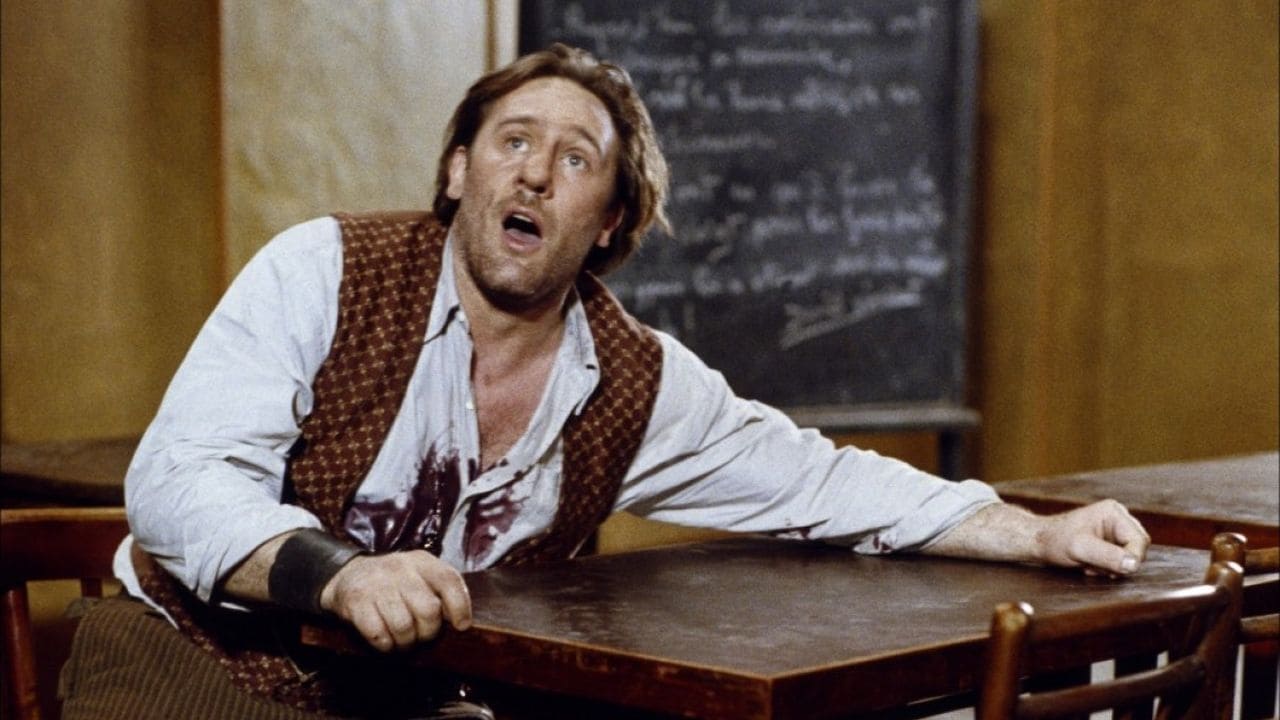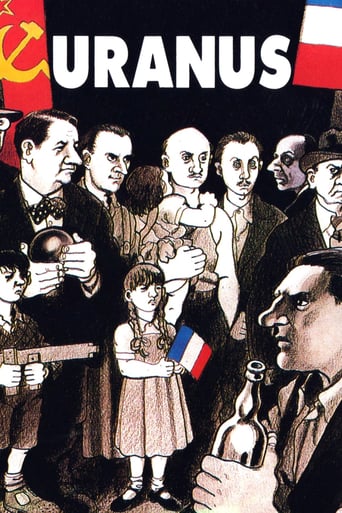

A Brilliant Conflict
... View MoreAt first rather annoying in its heavy emphasis on reenactments, this movie ultimately proves fascinating, simply because the complicated, highly dramatic tale it tells still almost defies belief.
... View MoreThis movie feels like it was made purely to piss off people who want good shows
... View MoreOne of the best movies of the year! Incredible from the beginning to the end.
... View MoreActing of the very highest quality. If Depardieu ever merited an Academy Award this would have been the film, not Cyrano. The rest of the actors are of the highest standard, especially Philippe Noiret who has a superb scene where he explains how he has developed his peculiar vision of life. This film never got all the credit it should have probably due to the complexity of the characters. This reviewer believes that it definitely qualifies as one of Claude Berry's best films. It is a film that would have been more suitable for the 70s when complexity was still deemed desirable and tended to take precedence over uninterrupted action. Uranus is one of those war/post war films that one views once and never forgets, films such as "The Tin Drum", "The Grand Illusion", etc.
... View MoreClaude Berri seldom lets you down whether as Producer, Writer, Actor or Director and if he has a signature when Directing it is in the beautiful compositions he delights in even if dealing with a serious subject as he is here. Although he is no slouch as a writer of Original Screenplays himself some of his finest works have been adaptations of existing material such as Marcel Pagnol's Jean de Florette, Emile Zola's Germinal and this work, based on the novel by Marcel Ayme. It is now a good sixty years since the end of World War II but it remains a sensitive issue to the French for the simple and obvious reason that for several years (1940 - 1944) they were an Occupied nation and that brought out the very Best (Resistance) and very Worst (Collaboration) in the population. Berri's masterstroke is to set his film in the immediate aftermath of the war in a small town still strewn with the rubble of bombing, a backdrop against which the citizens are attempting to resume their lives but in doing so they merely applied a bandage but no dressing to the raw wounds of guilt and retribution allowing them to continue to fester beneath the surface and occasionally erupt into violence and as always it is the essentially gentle giant (Gerard Depardieu), a poetry loving saloon keeper, who pays the highest price. The acting is of the very highest standing throughout with Depardieu, Michel Blanc, Philippe Noiret and Fabrice Luchini beyond praise, as is the film itself if anyone asks you.
... View MoreAs a frenchman, I shouldnt' be too proud of how that film speaks about the behaviour of my compatriots of the 1940's. Where is the legendary courage of the french Resistance? Where is the french yearning after liberty and independance? "Uranus" shows us a bunch of average people, who wish just one thing: survive, re-build their lives and their town after the traumatism of the war. One of the great ideas of the novel and of the film is to have placed the plot directly AFTER the war. The Germans are gone, they can't be the enemy anymore! Now, the suspicion is turned towards the own neighbor! In that film, war isn't a question of honour or courage anymore. Before great values (like liberty or human rights), people fight for their lives. And after the war, the fight goes on among civilians, in a different manner. In this global suspicious atmosphere, everyone makes anybody else clear that he could send him to death if he revealed what he knows (about black market, collaboration with the occupant, "last-hour-resistants" and so on). This film puts France and WWII in a different light, which isn't very pleasant, but reflects far more the reality than the usual film production about that period. And besides...really great acting.
... View MoreWWII left of lots of scars in French memory. Right after the war, all the French were supposed to have been freedom fighters, minus a few baddies of course. Then, slowly, a different truth started to emerge, and since the controversy has been raging on. Uranus, written by Marcel Aymé right after the war, was always controversial, as is this modern adaptation by Claude Berri. In this half-destroyed (by US bombings) French village in 1945, people try to have their lives back, or to save themselves : communists, drunks, sadistic late-hour partisans, former antisemitic hate-mongers, war profiteers... These characters may be too theoretical to be convincing, and of course the permanent blurring of the line between the good and bad guys is too systematic. However, the superior acting and the fact that the movie still manages to raise difficult issues (the general tone is very misanthropic), make it very compelling.
... View More